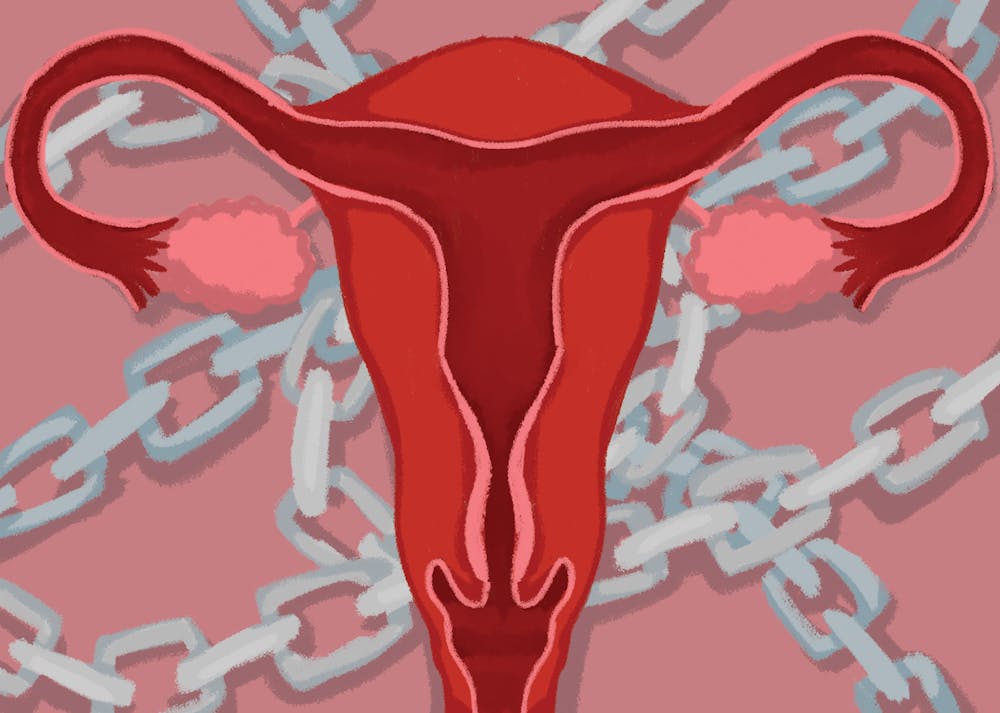Arizona joined a growing list of Republican-led states to pass anti-abortion legislation, expanding restrictions on prenatal health care.
Gov. Doug Ducey signed Senate Bill 1164 on March 30, making it illegal for doctors to perform an abortion after 15 weeks of pregnancy.
Doctors who perform the procedure after 15 weeks will be prosecuted for a Class 6 felony, the lowest level of felony crime, and could have their license suspended or revoked. The pregnant person who obtains an abortion will not face criminal charges.
The law allows an exception if doctors believe giving birth would put the pregnant person's life at risk. The law does not have exceptions for people who become pregnant as a result of rape or incest.
In 2020, 636 women obtained abortions in Arizona after 15 weeks of pregnancy, according to records from the Arizona Department of Health Services records. Records show 12,550 women sought abortions prior to 15 weeks.
Arizona's law is one of many that will take effect if the Supreme Court fully overturns Roe v. Wade, which makes abortion legal nationwide.
The constitutionality of the states' laws restricting abortions hinge on an opinion in the Dobbs v. Jackson Women's Health Organization case, which is likely to come this summer. The lawsuit concerns a Mississippi law that would ban abortion after 15 weeks. If the justices uphold the Mississippi law, then the right to an abortion will no longer be federally protected, meaning abortions could be legal in some states and illegal in others.
Kaiponanea Matsumura, an associate professor of law who studies the intersections of contract, family and status, said "whether the law is enforceable or not" depends on the Supreme Court's opinion on the Mississippi case, and if it fully or partially overturns Roe v. Wade.
Pamela Stewart, a women's history lecturer, said the idea that anti-abortion bills are for pregnant people is a problem originating before Roe v. Wade.
"The law has such a long history of seeing male bodies as a default, female bodies as the exception — that either need to be protected or they need to be controlled," she said. "...All of these things have been affected by laws."
Ducey's decision to sign the bill as part of a larger anti-abortion pattern
Sahara Sajjadiankhah, president of ASU Young Democrats, said women on campus acknowledge the bill is "heinous." But, she was not shocked Ducey signed it.
"It was really disheartening because these bills, obviously, target women of color, working class women, lower class women, before they target the white upper class woman," said Sajjadiankhah, a junior studying political science. "It's such a slap in the face to be told that our rights to our own body and bodily autonomy don't matter."
Black and Latino Arizonans obtain abortions at higher ratios than white Arizonans, state records show.
Clay Robinson, chairman of Arizona College Republicans, said the anti-abortion bill was "a victory for Arizona."
"Though the ultimate aim of the pro-life movement is to see the abolishment of abortion, this is an important step to affirming the human being that is in the womb," said Robinson, a junior studying civic and economic thought and leadership, political science and innovation in society. "It was just a sigh of relief, all the work has been put in and it finally made it to the governor's desk."
Robinson said college GOP members who walked in January's March for Life think it's a "biological truth" that life begins at conception. He said they do not compromise their "value for life."
Young Democrats hosted an event on March 3 for students about abortion, accessibility and "anti-choice legislation."
"In response, we are always trying to educate our members," Sajjadiankhah said. "We try to be really careful with our language as well. We try to hammer in that these people are not 'pro-life,' they are anti-choice."
Young Democrats will attend Planned Parenthood Generation Action's 2022 spring abortion rights summit on April 30 "in response to anti-abortion bills being passed in Arizona and around the world," the sign up form says.
Sajjadiankhah said making abortion illegal will limit access to health care for pregnant people.
"This does not prevent abortion, it prevents safe abortion," Sajjadiankhah said.
Correction: A previous version of this story incorrectly stated abortions would immediately become illegal if Roe v. Wade was overturned. The story was updated at 11:35 a.m. on June 24, 2022, to correct the error.
Reach the reporter at tjgantz@asu.edu and follow @GantzTori on Twitter.
Like The State Press on Facebook and follow @statepress on Twitter.

Tori is a politics reporter covering voting rights, labor, and University Student Government Polytechnic at the State Press. They are currently working for the News Collab and Wick Communications to create the Voices Listening Project, a collaborative research project in Arizona funded by the Google News initiative.




